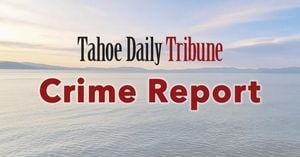Governor Greg Abbott of Texas has sent ripples through the healthcare community after appearing to threaten funding for hospitals over comments made by a Houston doctor, Dr. Tony Pastor. The controversy erupted when Pastor, who specializes in adult congenital heart conditions, shared advice on TikTok urging patients not to answer U.S. citizenship questions on hospital intake forms.
The governor's remarks came as part of his executive order issued back in August, which mandated hospitals accepting Medicaid or the Children’s Health Insurance Plan to ask patients about their citizenship status. This move, according to Abbott, aimed to address the rising costs of medical care for undocumented immigrants and to seek federal reimbursements. Abbott claimed, "Texas absorbs a large percentage of the costs associated with medical care for individuals who are not lawfully in the United States."
Things took a heated turn on November 24, when Abbott posted on X (formerly known as Twitter) targeting Texas Children’s Hospital and Baylor College of Medicine, where Pastor is employed. He tweeted, “Hey Texas Children’s Hospital & Baylor College of Medicine this doctor is putting your Medicaid & Medicare funding at risk. You'd best think twice & have crystal clear records. There will be consequences for failing to follow the law.” His post implied significant repercussions could follow for hospitals disregarding his order.
Pastor's viral TikTok, which garnered approximately 1.2 million views and over 246,000 likes, encouraged individuals to resist answering the citizenship question, implying it could skew the data intended for state assessments. He provocatively questioned, "Wouldn't it be amazing if everyone who came in doesn't answer it, and really messes with whatever data they're looking for?" The video was not just about protest; it also highlighted the discomfort felt by healthcare providers about the collection of such sensitive information, especially when it could lead to fears of deportation among patients.
The comments surrounding this situation have ignited important discussions about patient rights and healthcare access. Organizations like the American Civil Liberties Union (ACLU) have weighed in, declaring hospitals are obliged to ask the citizenship question, but individuals have no legal requirement to answer. They emphasized the right to receive life-saving care regardless of immigration status, reflecting the urgency of the topic amid rising immigration-related sentiments.
Dr. Pastor, confronted with the fallout from his video, later addressed Abbott's tweet, commenting, “When the gov of Texas threatens you on Twitter because he is mad you exercised freedom of speech,” illustrating the clash between public health and political mandates.
Further complicity ensued as the San Antonio Metropolitan Health District echoed Pastor’s statement, issuing flyers to inform patients they are not obligated to answer the citizenship question. These flyers reaffirmed: “Your answer will not affect your care — you will not be turned away.” This, they argued, underpins the fundamental principle of providing health care without discrimination against one's immigration status.
While this dispute highlights the intersection between health policies and immigration, it has wider social ramifications. The political pressure from Abbott's administration raises concerns among healthcare practitioners about the potential chilling effect this could have on undocumented individuals seeking medical help.
This scenario encapsulates not just the political climate surrounding immigrant healthcare but also the ethical obligations of medical professionals to provide care devoid of fear of reprisal or legal threats. Healthcare advocates are urging for a reevaluation of such policies, making it clear the health of the community should not be bartered for political agendas. Abbott's approach, particularly his threats to withdraw funding, may have unintended consequences, potentially jeopardizing access to care for some of the state's most vulnerable populations.
Abbott’s order and the subsequent reaction indicate a growing tension between ensuring accessibility to healthcare and enforcing compliance with political directives. It’s evident the signs are pointing to larger battles brewing within the Texas healthcare system as the need for compassion and service clashes with stringent enforcement policies around immigration.



